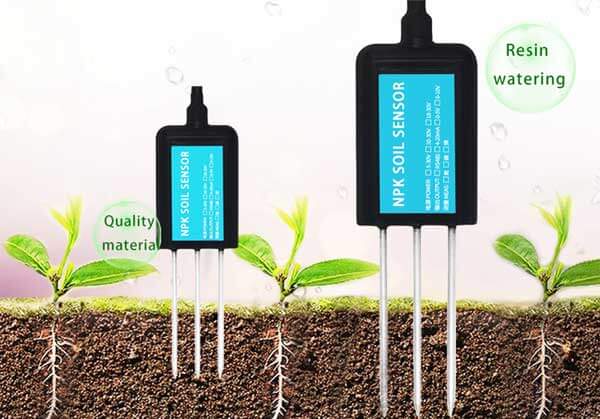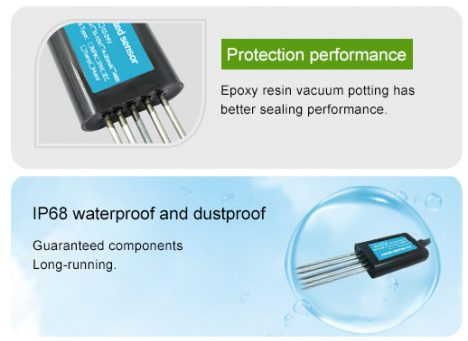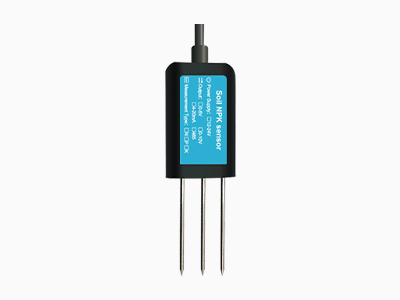The soil NPK sensor is suitable for detecting the content of nitrogen, phosphorus, and potassium in the soil, and judging the fertility of the soil by detecting the content of N, P, and K in the soil. The stainless steel probe of the soil npk sensor can be buried in the soil for a long time and is resistant to long-term corrosion. The housing is vacuum and completely waterproof.
- Model: JXBS-3001
- MOQ: 1 PCS
- Delivery date: within 24 hours
Advancements in Soil NPK Sensor Technology

Soil npk sensor description
The soil npk sensor is suitable for detecting the content of nitrogen, phosphorus, and potassium in the soil, and judging the fertility of the soil. thereby facilitating the systematic evaluation of the soil condition. The sensor can be in the soil for a long time, is resistant to long-term electrolysis, corrosion resistance, and is completely waterproof. We apply soil npk sensors to precision agriculture, forestry, soil research, geological exploration, plant cultivation and other fields.
Benefits of Soil NPK Sensors

Enhanced Crop Yield and Quality: The use of soil NPK sensors allows for optimized nutrient management, leading to improved crop yield, quality, and uniformity. By ensuring that crops receive the right balance of nutrients, farmers can maximize production while minimizing input costs.
Cost Savings and Resource Efficiency: Precision fertilization based on NPK sensors data can result in cost savings by minimizing over-fertilization and reducing the need for excessive nutrient inputs. This contributes to resource efficiency and economic sustainability for agricultural operations.
Data-Driven Decision-Making: Soil NPK sensors empower farmers and agronomists to make data-driven decisions regarding nutrient management, fertilization schedules, and crop rotation strategies. Access to real-time soil nutrient data enhances the precision and effectiveness of agricultural practices.
Environmental Protection: Through targeted nutrient application, soil NPK sensors help mitigate the environmental impact of agricultural activities. By reducing nutrient runoff and leaching, these sensor.
Conclusion
Soil NPK sensors have revolutionized nutrient management in agriculture, offering a wealth of benefits and applications across diverse farming environments. With ongoing advancements in sensor technology, data analytics, and precision agriculture practices, the role of soil NPK sensors in optimizing crop production and environmental sustainability continues to expand. By embracing the capabilities of these sensors, farmers and agricultural stakeholders can harness the power of real-time soil nutrient data to drive informed decision-making and enhance the long-term productivity of agricultural landscapes.
